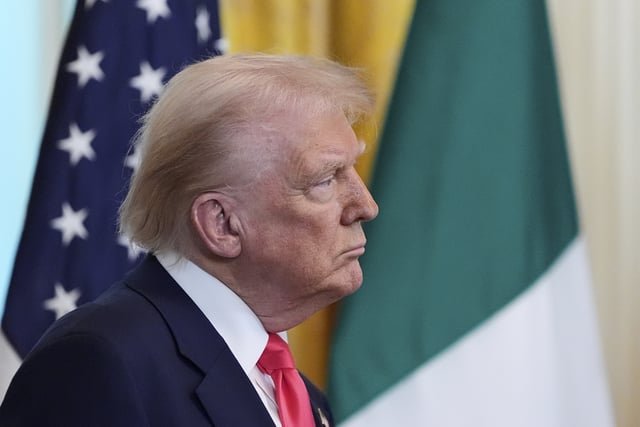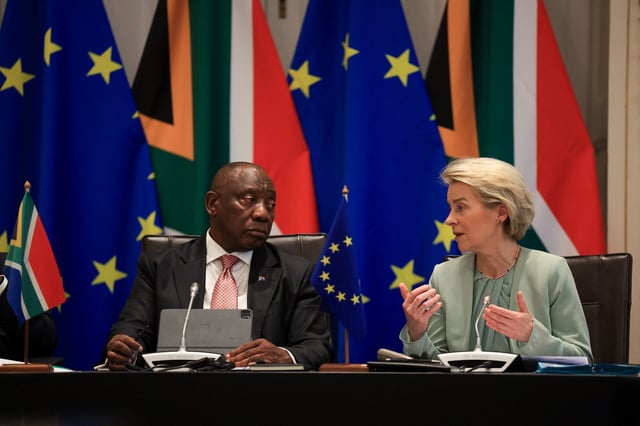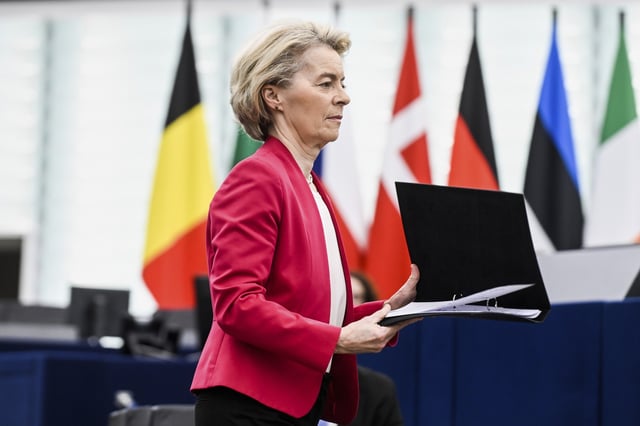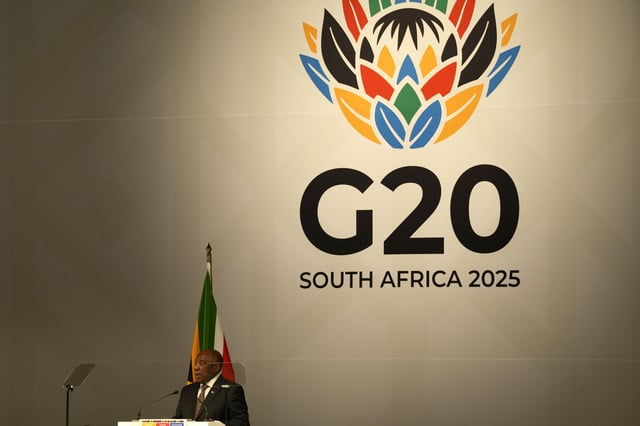Overview
- The European Union unveiled a €4.7 billion investment package under its Global Gateway Initiative, focusing on green energy projects, vaccine production, and infrastructure development in South Africa.
- The investment aims to support South Africa's transition to clean energy, including hydrogen power, while minimizing socio-economic disruptions in coal-dependent communities.
- South African President Cyril Ramaphosa emphasized the importance of multilateralism and shared values in the partnership, highlighting the EU's role as a key trading and investment partner.
- The summit comes after the U.S. withdrew climate funding and cut aid to South Africa, with EU leaders stressing their commitment to long-term cooperation.
- EU representatives also addressed global geopolitical challenges, seeking to bolster ties with South Africa as part of a broader strategy to strengthen alliances and counter unilateral policies.



